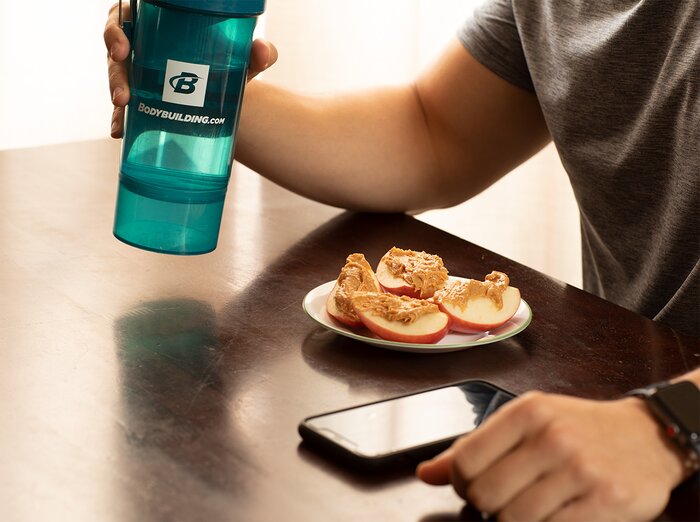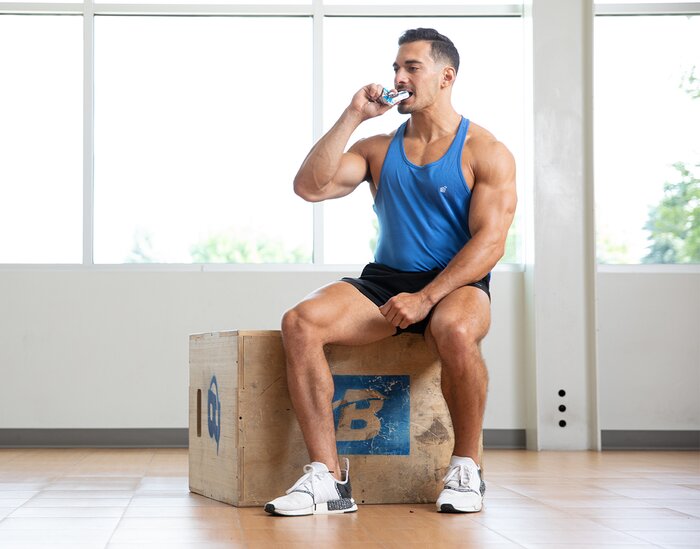How to Lose Weight Fast | Nutrition for Fast Weight Loss | Dial in Your Cardio for Quick Weight Loss | Hack Your Workouts to Lose Weight Faster
No matter how many products you see that claim to be a "magic" weight-loss cure, losing weight the right way just isn't that easy. But it doesn't have to be the all-out miserable grind that many people make it out to be! And yes, it can be achieved faster than you might expect.
So, here's my definition of "fast:" If you're serious about losing weight, plan on dieting for at least 10 weeks. This will give you enough time to fine-tune your diet for your particular food preferences and activity level. If you cheat on your plan occasionally, just get back to it and keep moving forward.
Got your expectations set? Then let's get your diet dialed in!
Get Specific with Your Macros
Yes, it's possible to lose weight without counting calories or macros. But the faster you want results, the less wiggle room you have. So, my advice is to learn these skills so that you can be more informed down the road. Many athletes say it becomes pretty much automatic.
To start, use a macronutrient calculator to get an estimate of how many calories you should eat each day and, just as importantly, how many grams per day of protein, carbohydrates, and fats should be making up those calories. When you fill out the form, choose "lose weight" as your goal and do your best to pick the level of activity that matches what you do on an average day. If you say you're more active than you really are, you'll end up with a lot more calories than your body needs, and you'll start gaining weight.

Why count your macros? For one, it allows you some flexibility to satisfy your cravings, especially if you're following a "flexible dieting" or IIFYM approach. But it also adds some guardrails of where you're getting your calories from!
If your target calories are, say, 1,800 per day, and you basically live on fast food and pastries to get them, you might lose some weight. You'll also lose muscle mass, struggle in your workouts, and feel terrible. That doesn't sound sustainable to me.
The best protein bars are crunchy, chewy, and craveable—and the macros are top-notch. Why resist?
Now That I Have My Macros, How Do I Lose Weight?
Once you finalize your daily macronutrient targets, stick to those targets each day. It'll take some practice, which is why I recommend most people practice tracking their food before they start changing their macros dramatically. Then, it's time to start tracking your progress!
No, you don't have to weigh yourself every day, but I recommend doing it at least once a week when weight loss is the goal. When you do, weigh yourself at the same time of day while wearing the same kind of clothes—or no clothes at all.
If you've calculated your macros as instructed above and have stuck to your daily calorie allowance, you should begin losing weight. In general, a good weight-loss goal is to lose 0.5-1.0 percent of your body weight each week.
If your weight loss stalls, it's probably because your body has learned how to function on fewer daily calories. This happens! To reignite fat loss, reduce your current calorie intake by 15-20 percent. (For example, a person consuming 2,000 calories a day would have to reduce that by 300-400 calories a day.)
If you need to reduce calories, start by reducing your fat intake. Keep your carbohydrate and protein consumption as high as possible for as long as possible to maintain your energy. Just don't let your total fat intake dip below 10 percent of your total daily calories. Having fewer fats than that in your diet can harm your performance, recovery, muscle maintenance, and testosterone production.
If you have to reduce your calories even more, stop reducing your fats and start reducing your carbohydrates.
That's All Great, But I'm Still Hungry!
If you follow the steps outlined above, you'll be on your way to effective and sustainable fat loss. But you may start to feel hungry a lot and have less energy.

To help you navigate this inevitable rise in hunger and fatigue, try these strategies:
- Drink up! Filling your stomach with fluid sends satiety signals to your brain, which can help you feel less hungry. I recommend drinking your body weight in ounces daily while losing weight. If you find yourself dreading the jug, add some hydration supplements for extra flavor.
- Prioritize high-fiber carbohydrates. Fiber slows down digestion, which helps keep your energy levels steady and your appetite in check.
- Include vegetables with each meal. Vegetables are high in both fiber and water, each of which helps you better manage your appetite and energy.
- Consume your carbohydrates before, during, and after your workouts. To avoid low-energy workouts and poor recovery, get 70-80 percent of your daily carbohydrates from your pre-, intra-, and post-workout meals.
- Become a snack master. Cravings will happen. It's part of life! That's why it's crucial to have a little black book—or a big one—of healthy snacks and recipes. The extensive Bodybuilding.com Recipe Database can be your best friend here.
What About Supplements?
Taking dietary supplements can definitely help you make sure your body has all the nutrients it needs to stay healthy—and keep crushing workouts—while you're on fewer calories than usual. They can also help you lose weight—and no, I'm not just talking about fat burners!
One you may not have considered is creatine. Yes, creatine! Taking creatine during a diet helps maximize your workout performance and muscle maintenance, which can further help your body burn more calories and lose more fat.*
Krissy Kendall, Ph.D., lays out more unexpected but research-backed suggestions for fast fat-loss in the article, "5 Ways to Up Your Fat-Loss Supplement Game."
Trying to lose weight fast? That's exactly what the best fat burners were designed to help with.
*These statements have not been evaluated by the Food and Drug Administration. This product is not intended to diagnose, treat, cure, or prevent any disease.

